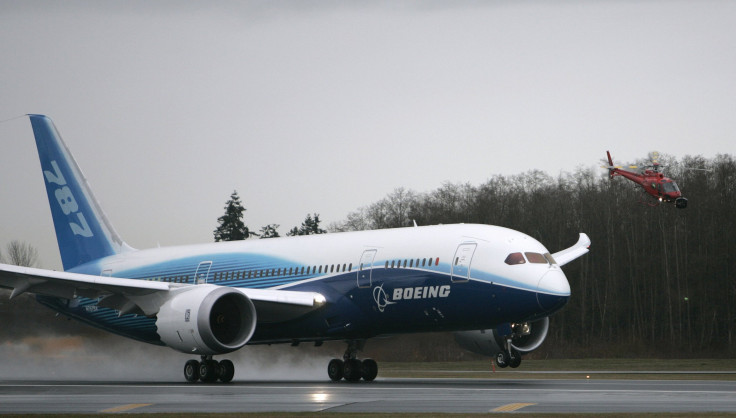Boeing (BA) 777X: Economic Warfare Between States For Boeing Jobs Is Hurting The Poor, Endangering Public Services And Only Serves Foreign Customers

Yesterday marked the end to the economic war between states fighting over the lucrative The Boeing Company (NYSE:BA) 777X manufacturing contract. Executives from the company will sit down over the next month and decide which state offers the best deal for Boeing. The winning team will be praised and celebrated for bringing much needed jobs into the state, but at what cost will those jobs be gained and will everyone in the winning state gain?
Essentially, Boeing has put those available 777X jobs up for auction in exchange for major tax breaks, economic land subsidies and cheap labor. Washington State, for example, offered a package amounting to $8.9 billion to keep the 777X production in state, which turned out to the largest state tax subsidy in U.S. history, eclipsing New York’s deal with Alcoa that cost $5.6 billion and the last Washington-Boeing deal that was signed in 2003 for $3.2 billion.
The competition for the Boeing contract began when Boeing employees in Washington State rejected a pay deal that would have restructured new employee’s pay scales and pensions, but on the other hand, would have guaranteed that the manufacturing of the new Boeing aircraft would stay in Washington State and keep valuable jobs until 2025. The deal was rejected and so began the scramble among state governors to entice Boeing out of Seattle.
But what happens when states forego tax dollars in exchange for jobs?
Greg Le Roy, author of ‘The Great American Jobs Scam: Corporate Tax Dodging and the Myth of Job Creation’ believes that when states offer large tax incentives, people in the state will suffer.
“There is absolutely a burden shift going on here,” said Le Roy. “Whoever wins the Boeing deal, including Washington State, only two things can happen to the people in that state: either they have to pay higher taxes to cover the revenue that Boeing won’t be paying, if they want to maintain the same quality of public services, or they have to suffer lousier public services or some mix of the two.”
The evidence has is already being seen just one day after applications for the deal were due. The Missouri Legislative Black Caucus wrote to state governor Jeremiah Nixon and asked,“what about people who won't benefit from those jobs?” The letter goes on to express the group’s “anger and disappointment” after the MLBC claimed the state government struck a deal to divert low income housing tax credits to help fund the Boeing deal after it initially appeared that Republican senators would stop it from happening.
“We can assure you that all of us, and many other Missourians, will strongly oppose any effort to use the Boeing deal as an excuse to deprive needy senior citizens and low income Missourians of decent housing,” stated the letter.
However, as Le Roy says, these tax incentives only make up a small percentage of the corporation’s income, but affect the average person in-state a lot more because public services are diminished, and when it’s all said and done, each job created, according to a report by Good Jobs First from June 2013, as described by a study of 240 state-business deals, costs around $456,000 to the state.
Illinois, for example, is considering raising corporate taxes to recoup lost income after allowing dozens of tax incentive deals since 1985.
“There’s no such thing as free growth because if the jobs do arrive in, say, St. Louis and induce growth there,” says Le Roy. “You’re going to have to educate more kids, hire more teachers, widen more lanes, pick up more trash, none of those things are free and if Boeing is not paying its fair share in the cost of that induced growth – you will end up with either higher taxes or lousier public services.”
Tax incentives to bring companies into state are nothing new. In 1976 Pennsylvania gave Volkswagen a $40 million low-interest loan and offered millions more in property tax deals worth more than $100 million, only for the plant to shut 12 years later. Mississippi was the first state to offer incentives in the billions when it brought Nissan into Madison County in exchange for a 20 year tax break worth $1.25 billion.
And if the deal does eventually end up in Washington State, where many think it will go, the $8.9 billion incentive will have a double blow to low-income people in the state. The tax breaks, as well as being diverted from valuable public services, are initially raised from a very imbalanced tax system.
According to the institute on taxation and economic policy, Washington State’s taxes average about 9.7 percent of income, but it affects the poorest 20 percent, who have to pay around 16.9 percent of their taxable income, whereas the richest 1 percent pay around 2.8 percent of their income. According to the study, this is the highest tax for the poorest 20 percent of tax payers in America. And the next poorest 20 percent in Washington pay the second highest in the country, according to 2013 figures.
All in all, the deal looks bad for residents in Washington State because not only are the poorest paying a huge amount of their income to pave the way for the megadeal, they will also benefit less from it as the money only goes to providing about 9,000 jobs, rather than maintaining or improving public services for all.
Boeing say that the incentives mean they can offer aircraft at a lower cost price to customers, predominantly foreign based, state-owned carriers. However, should that cost reduction be coming at the expense of, say, the low-income inhabitants in Missouri or the low earners in Washington State?
© Copyright IBTimes 2024. All rights reserved.












